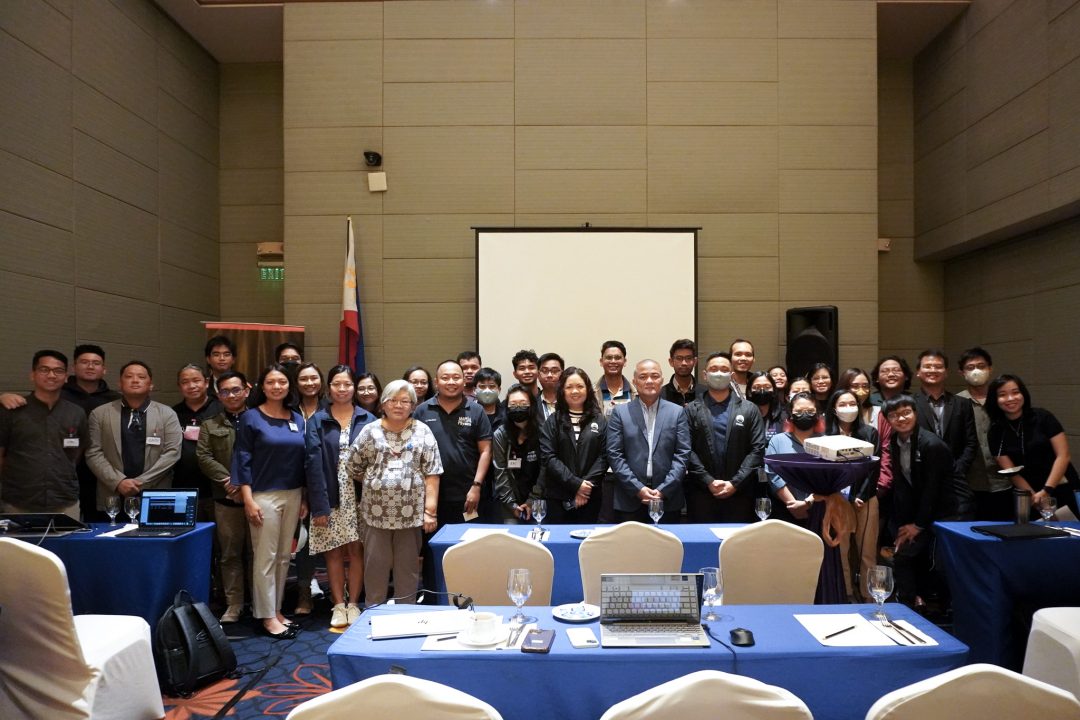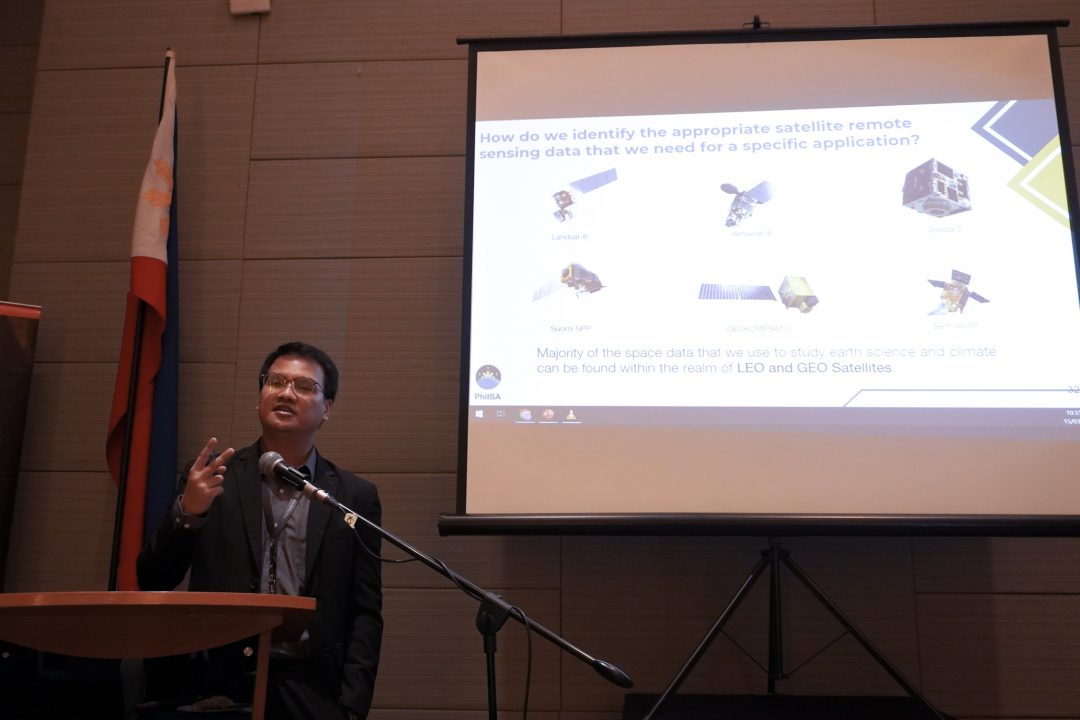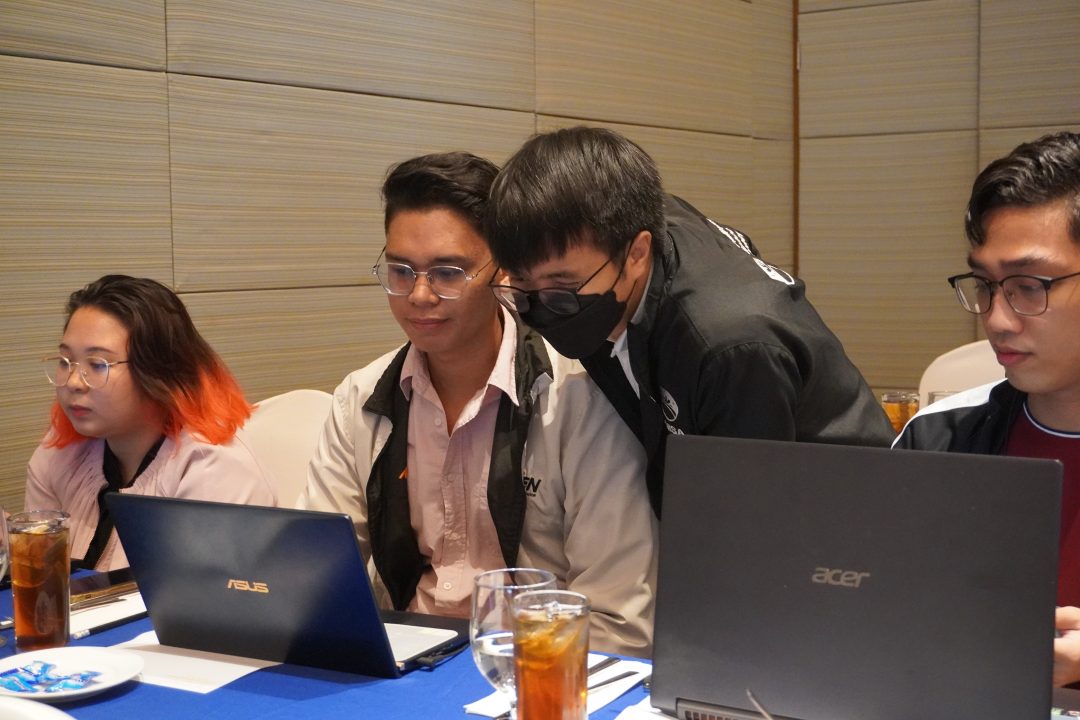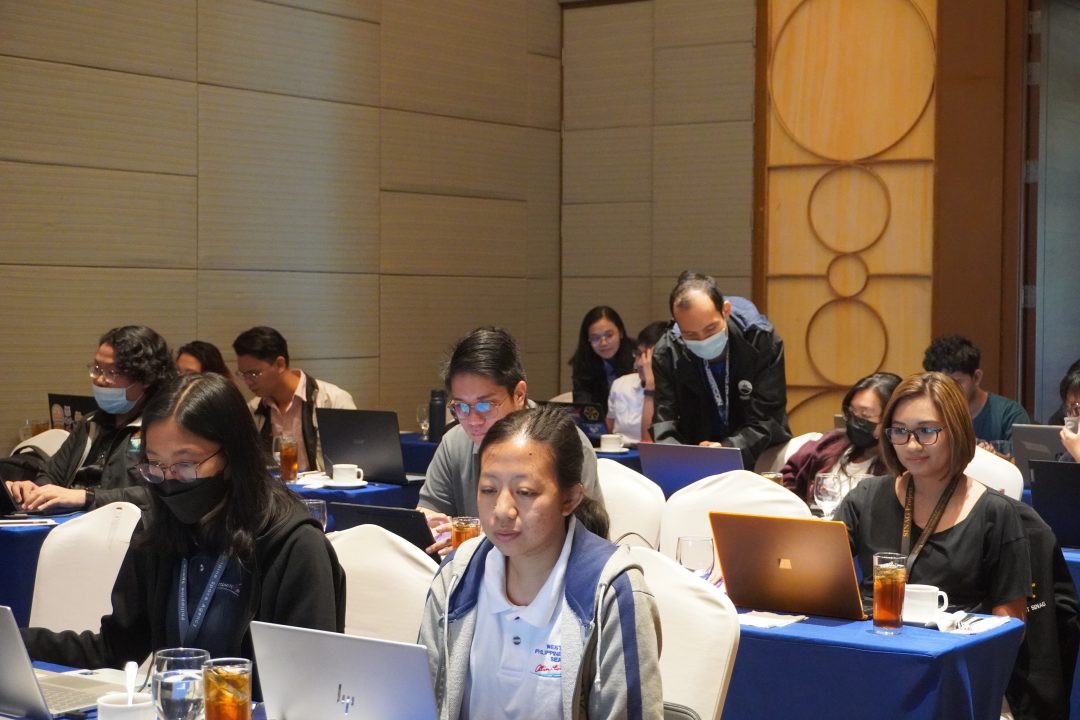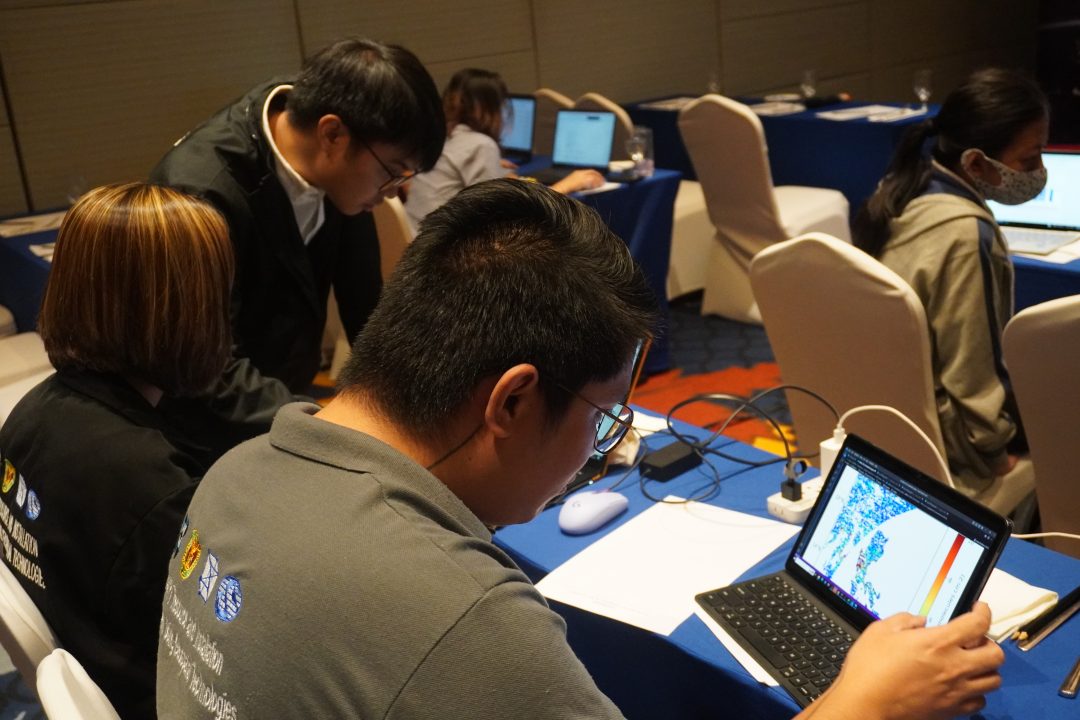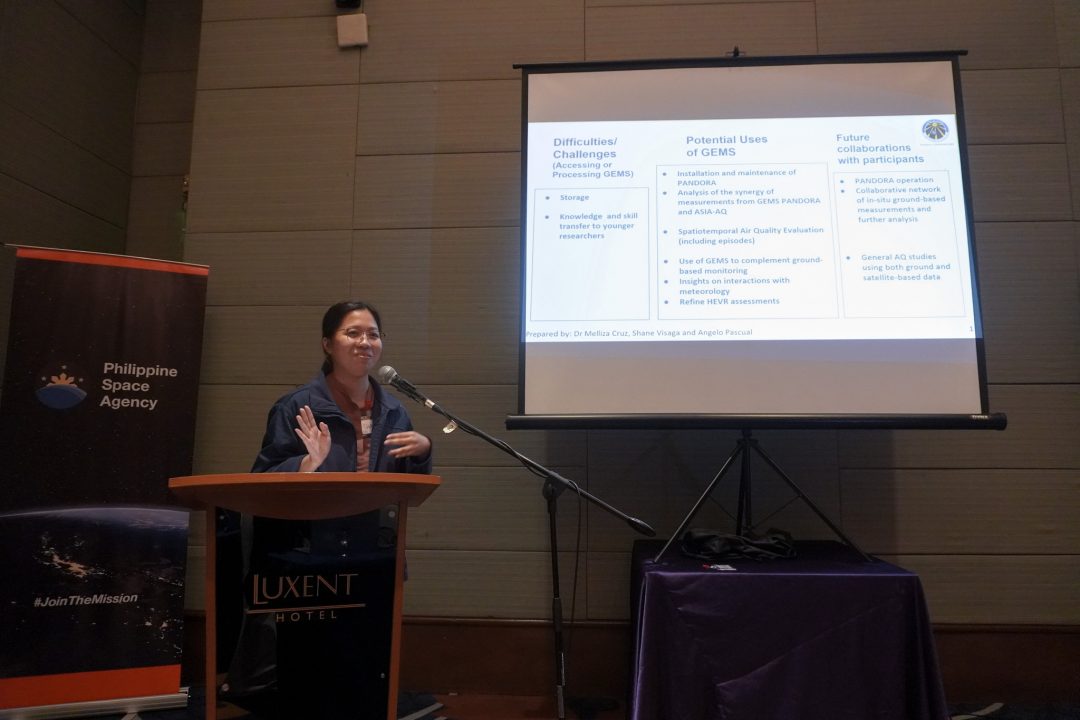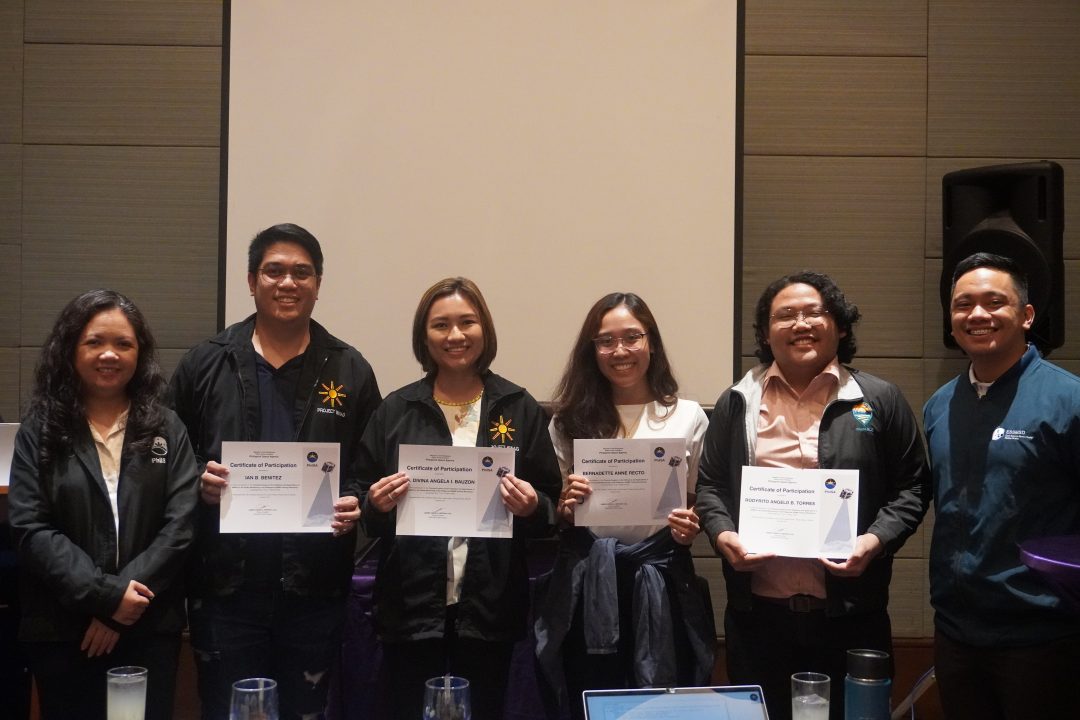Remote sensing (RS) is an integral method in monitoring air quality to aid in mitigating the adverse effects of air pollution on public health and the environment. Satellites offer a vantage point to observe variables that complement readings from air quality sensors on the ground. One of these remote sensing tools that provide data on air quality is the Geostationary Environment Monitoring Spectrometer (GEMS) aboard the South Korean GEO-KOMPSAT-2B satellite. Said to be one of the ground-breaking advancements in air quality monitoring from space, GEMS is designed to monitor atmospheric pollution events over the Korean peninsula and the rest of the Asia-Pacific region.
The Philippine Space Agency (PhilSA) conducted a training workshop on the utilization and applications of GEMS for air quality monitoring in the Philippines on 15 to 17 March 2023 at Luxent Hotel in Quezon City.
Participants of the workshop were RS practitioners from the Air Quality Management Section of the Department of Environment and Natural Resources-Environmental Management Bureau (DENR-EMB), Department of Science and Technology-Advanced Science and Technology Institute (DOST-ASTI), Manila Observatory (MO), Mapua University Department of Physics, De La Salle University Physics Department, and the Institute of Environmental Sciences and Meteorology (IESM) and Training Center of Applied Geodesy and Photogrammetry (TCAGP) of the University of the Philippines.
The workshop echoed the learnings from the training on GEMS applications for air pollution received by PhilSA researchers in South Korea in June 2022, and virtually in August 2022.
The 3-day event held lectures and hands-on demonstrations on the access and use of GEMS data products for air quality monitoring. These data products–or data captured by the satellite–include NO₂, SO₂, O₃, and aerosol readings.
An overview of the Pandora data processing was also conducted. Pandora instruments are ground-based spectrometers that measure the same data products GEMS observes in space and are used to validate the satellite readings.
At the end of the training sessions, a working group discussion was carried out to identify possible challenges, activities, and collaborations among the various government and academic institutions present. The participants revealed the potential challenges in accessing or processing GEMS data, such as the need for compute power not yet available in their institutions. Despite this, eagerness in potential use cases and collaborative research that make use of GEMS data, such as comprehensive spatiotemporal monitoring of air quality and monitoring volcanic activity and forest fires, were displayed during the training.
The GEMS training is the first of a series of workshops conducted by PhilSA in fulfillment of the objectives of the Pan-Asia Partnership for Geospatial Air Pollution Information Project and the Pandora Asia Network (PAPGAPI-PAN) Philippines Project. Made possible through a partnership with the Korea International Cooperation Agency (KOICA) and the National Institute of Environmental Research (NIER), PAPGAPI-PAN is a technology transfer, data-sharing, capacity-building, and international cooperation initiative on air pollution. More training workshops will be conducted in 2023 to strengthen the network and air quality monitoring capabilities of Philippine government and research institutions.





